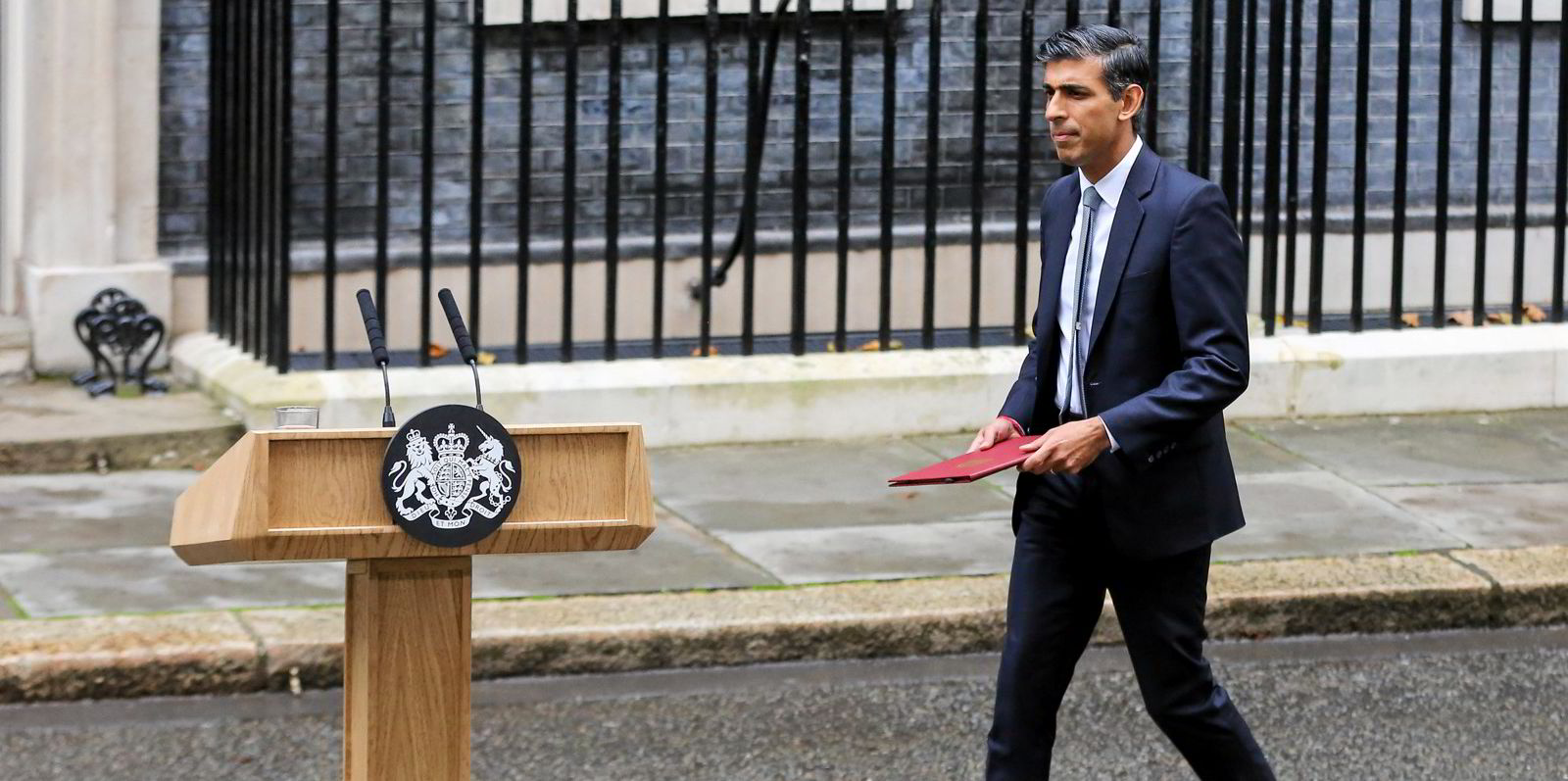The UK wind industry is seeking urgent clarification from the UK government over its plans for onshore wind after new Prime Minister Rishi Sunak appeared to signal yet another U-turn over the issue – this time back towards restrictions on new projects.
Britain’s wind industry was delighted in September when the short-lived government of Liz Truss looked set to retract measures that since 2015 have placed big consenting barriers in the way of new onshore development in England, sending installations off a cliff since they were introduced.
Sunak, who replaced Truss earlier this week as leader of the governing Conservative Party after her chaotic departure, was asked in the House of Commons if he would back onshore wind as the cheapest new source of zero-carbon power.
While not directly answering, the new Prime Minister said he would “stick by what we said in our [2019 election] manifesto” and namechecked offshore wind and nuclear, sparking fears in the industry that Sunak was preparing to ditch Truss’s commitment to ease onshore restrictions – just as he has junked her plans to allow fracking and almost every other policy she introduced.
Green power players await answers
Renewable energy developers said it is crucial that Sunak abides by his predecessor’s plans.
Frank Elsworth, head of UK onshore development at Swedish giant Vattenfall, said: “Onshore wind is one of the lowest cost options for consumers to ensure energy security and tackle the climate emergency, whilst bringing benefits for supply chain and local communities.
“It’s important that UK government maintains its commitment to bring onshore consenting rules in line with other infrastructure, enabling onshore wind development in the most appropriate locations.”
Matthew Clayton, managing director at Thrive Renewables, added: “By returning planning policy back into line with other infrastructure projects, England would finally be able to unlock the full potential of this technology – something that has been made difficult since an effective ban was put in place in 2015.
“We look forward to hearing whether the reform will go ahead and, if so, what it will cover, but we urge the new Prime Minister to consider the huge opportunities onshore wind has to offer – new green jobs, cheaper, cleaner, homegrown power and a ready-to-go solution that can help accelerate our transition to net zero.”
Gareth Phillips, a partner at law firm Pinsent Masons, warned in an update to clients that the Truss government’s announcement had been “a real boost to the UK’s energy security and the decarbonisation agenda”.
'Uncertainty for investors'
He added: “By linking his government’s position on onshore wind to the 2019 manifesto, prepared before the Covid pandemic, Ukraine war, and the rapid escalation of energy prices, Sunak appears to have ignored those material considerations and cast doubt on whether the planning reforms [his predecessor] announced will be taken forward. This will create uncertainty for developers and investors.”
Recharge understands that the industry is seeking urgent clarity over the Sunak government’s intentions.
Green energy advocates hope that even though onshore wind was not specifically mentioned in the Conservatives' 2019 election winning manifesto, its obvious attractions as part of a general push to grow renewables – which was in the document – will persuade Sunak and new energy secretary Grant Shapps to lift the restrictions.
Dan McGrail, CEO of industry body RenewableUK, told Recharge: “Cutting people’s energy bills and boosting energy security must be high on the Prime Minister’s agenda, so we’re keen to work with Mr Sunak and his colleagues to achieve this as fast as possible.
“Lifting the block on onshore wind in England will mean more cheap power for billpayers and it has the support of over 70% of the public and over 80% of Conservative voters. We welcome the Prime Minister’s recognition of the importance of focussing on strengthening our energy security through growing renewables, as set out in the 2019 Conservative Manifesto."
The Department of Business, Energy and Industrial Strategy declined to comment when approached by Recharge.




